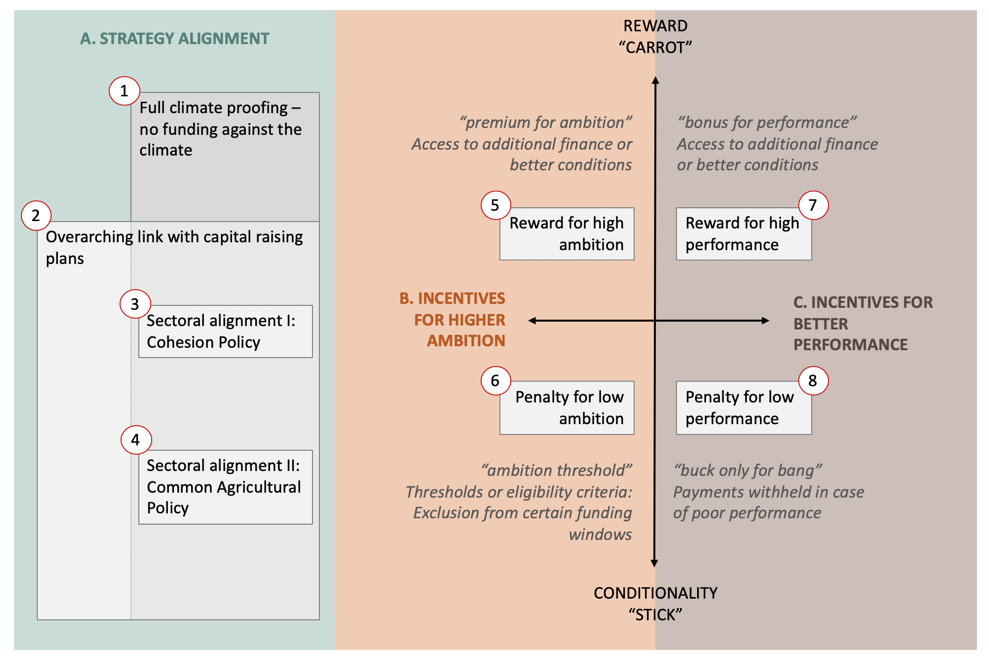Bringing Paris into the Future EU Budget
How to maximise the benefits of EU funding for the achievement of EU climate objectives
- Publication
- Citation
Duwe, Matthias 2018: Bringing Paris into the future MFF: how to maximise the benefits of EU funding for the achievement of EU climate objectives. Integrating the 2021-2027 MFF and the new 2030 energy and climate target governance. Ecologic Institute: Berlin.
The European Union is currently pursuing two important processes that can mutually support one another: implementing its 2030 climate and energy targets and defining the EU budget for the years 2021-2027. An Ecologic Institute analysis points out several ways to effectively connect EU funding with climate action and identifies hooks in the proposed legislation. The analysis is available for download.
While the EU has already adopted new legislation to support implementation of the Paris Agreement and the EU’s 2030 climate and energy targets, one major question remains unanswered: where will the financing come from for the additional investments in emissions reductions and clean energy? Over the course of May and June 2018, the European Commission has published its overall proposal for the future EU budget and detailed legislation on specific financing instruments to implement this so-called Multi-Annual Financial Framework (MFF) for the years 2021-2027. EU funding could and should play a role in supporting the financing of the climate and energy transition in line with the Paris Agreement. Climate action features visibly in the presentation of the proposal and in individual features (e.g. an increased goal of 25% of funding for climate mainstreaming), but the actual impact remains harder to quantify.
The EU budget process runs in parallel to the implementation of the Regulation for the Governance of the Energy Union (negotiations finished mid-June 2018) with its National Climate and Energy Plans (NECPs) as a central element. The synchronicity of the processes offers a unique opportunity for alignment. The analysis published by Ecologic Institute in this paper identifies three main means of creating a link between the MFF and the NECPs:
- ALIGNMENT OF STRATEGIES: An alignment of strategies: based on overarching objectives NECPs and financing strategies are coordinated and mutually consistent.
- INCENTIVES FOR HIGHER AMBITION: The creation of direct or indirect incentives for setting higher national ambition for economy-wide or sector specific objectives.
- REWARD PERFORMANCE: The MFF penalises underperformance – but knows few incentives for doing better than expected. New options need to be created for this purpose, possibly using a reserve set aside for this purpose. As a minimum, incentives to avoid policy roll-back could be generated.
Over the course of the second half of 2018, Ecologic Institute will produce further analysis with more detailed options as follow-up to this publication.
